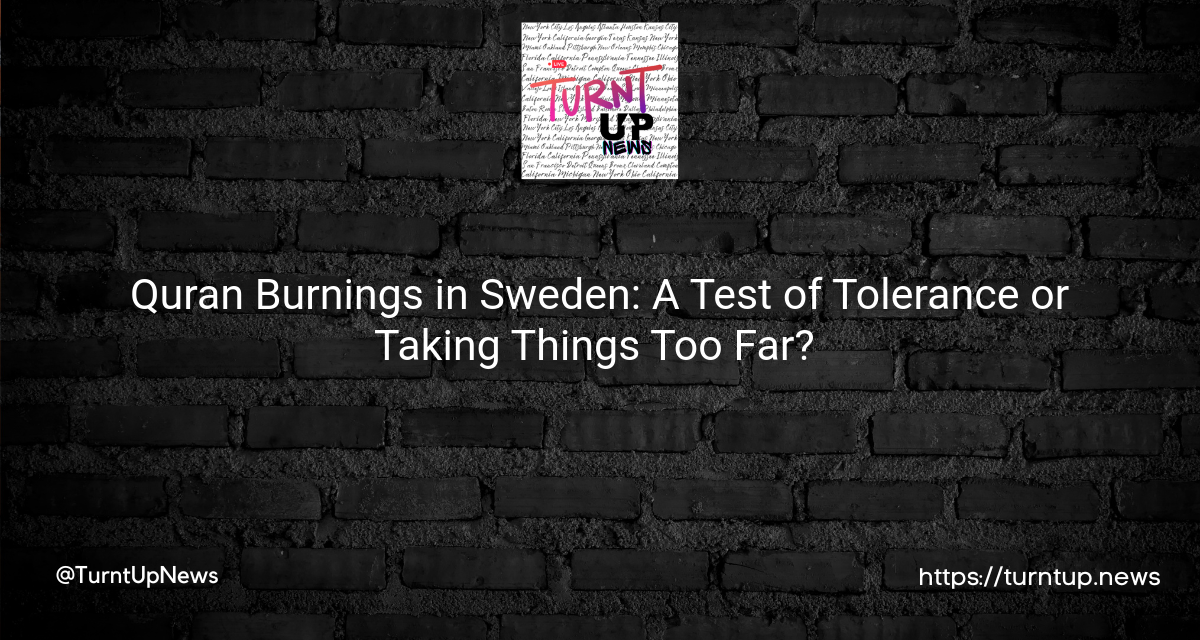Quran Burnings in Sweden: A Test of Tolerance or Taking Things Too Far? 🔥📖
TL;DR; Recent public desecrations of the Quran in Sweden have sparked riots, strained international relations, and caused domestic concerns, despite Sweden’s historic reputation for peace and tolerance. Sweden’s PM says it’s the most serious security situation since WWII. But how far is too far for freedom of speech? 🤔
In a world where freedom of speech is cherished, but respect for beliefs is paramount, Sweden’s recent public desecrations of the Quran find the nation in the eye of a stormy debate. This isn’t just about a book being desecrated – it’s about the cultural, religious, and moral dilemmas that arise in a progressively interconnected globe.
Imagine a peaceful, open-minded country that’s often held as the gold standard for tolerance and neutrality. That’s Sweden for many. But what happens when certain acts threaten this image? 🤷♀️🌍
Prime Minister Ulf Kristersson didn’t mince words when he recently voiced his concerns, emphasizing the gravity of the situation by suggesting it’s the most severe the nation has faced since the dark days of WWII. Now, that’s heavy! But what’s leading the nation’s leader to such a grim comparison?
Diplomatic fiasco, anyone? Several governments from predominantly Islamic countries have cast a discerning and disapproving eye on the Swedish authorities. Their bone of contention? They believe that the Swedish government should’ve acted against such desecrations of the Muslim holy book. 🕌📜 But here’s the twist: the Swedish government did condemn these acts. However, they also pointed out their hands are somewhat tied due to the nation’s strong laws on freedom of speech. And this is where it gets tricky – how do you strike a balance between preserving the right to freedom of speech and ensuring respect for religious beliefs? 🤝
Now, consider this real-life example. It’s like playing loud music in an apartment complex. Sure, you might have the right to enjoy your tunes, but does that mean you blast them at full volume, disturbing your neighbors? It’s about knowing where to draw the line, right? 🎶
Sweden’s international image has been put to the test. But isn’t this a dilemma many nations could potentially face? In an era where the lines between freedom, respect, and intolerance blur, where does one nation’s right end and another’s respect begin?
Final Question: In the age of global connectedness and shared cultural sensitivities, how should countries navigate the thin line between freedom of speech and respect for religious beliefs? 🌐🗣





